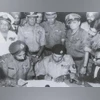Bangladesh's politicians and leaders on Monday "condemned" Prime Minister Narendra Modi's Facebook post on Victory Day that referred to the surrender of the Pakistan Army in 1971 as "India's historic victory", calling it "unacceptable" and "not a friendly expression", Bangladeshi publication Prothom Alo reported.
Prime Minister Modi's Facebook post on India's victory in the Indo-Pakistani war of 1971 has sparked strong reactions in Bangladesh, according to the report, which added that the post did not mention the people of Bangladesh or their struggle for independence from Pakistan.
In response to the post, Asif Nazrul, the Bangladesh interim government's law adviser, reportedly wrote, "16 December 1971, was the day of Bangladesh's victory. India was an ally in this victory, nothing more."
According to the report, many common Bangladeshi people on social media also expressed their anger over the post, with several politicians expressing their discontent.
Salahuddin Ahmed, a member of the Bangladesh Nationalist Party's (BNP's) standing committee, told Prothom Alo, "Bangladesh gained its independence after nine months of war. The struggle of the people of Bangladesh should not be viewed differently." He reportedly added, "The independence and sovereignty of a nation should be respected with mutual respect and dignity."
More From This Section
In his post, Prime Minister Modi wrote, "Today, on Vijay Diwas, we honour the courage and sacrifices of the brave soldiers who contributed to India's historic victory in 1971. Their selfless dedication and unwavering resolve safeguarded our nation and brought glory to us. This day is a tribute to their extraordinary valour and their unshakable spirit. Their sacrifices will forever inspire generations and remain deeply embedded in our nation’s history."
Coming back to reactions in Bangladesh, Hasnat Abdullah, an organiser of the Anti-Discrimination Student Movement, also criticised Prime Minister Modi's Facebook post, reportedly saying in his own Facebook post, "This was Bangladesh's Liberation War. That war was for Bangladesh's independence from Pakistan. But Modi claimed the war to be only of India and their achievement. The existence of Bangladesh is defied in their speeches."
Abdullah also reportedly stated that India's portrayal of Bangladesh’s Liberation War as its own achievement is perceived as a direct threat to Bangladesh’s independence, sovereignty, and territorial integrity.
Reacting to Prime Minister Modi's post, Ruhin Hossain Prince, general secretary of the Communist Party of Bangladesh (CPB), told Prothom Alo, "I strongly condemn Modi's statement. It is unacceptable."
Shahadat Hossain, a spokesperson for the country's 12-party alliance, which is allied with the BNP, said, "The people of Bangladesh fought and won the war for independence." He added, "The statement of India's prime minister is not a friendly expression."
Hossain reportedly said that such comments arise from an authoritarian mindset.
Zunaid Saki, the chief coordinator of the Ganasamhati Andolon, told Prothom Alo, "India does not truly appreciate or consider the significance of Bangladesh's struggle for independence." He added, "This is once again proven by Narendra Modi's post."
The Indo-Pakistani War of 1971, the third military conflict between the two countries, occurred during the Bangladesh Liberation War in East Pakistan. It began on December 3, 1971, and ended with Pakistan's surrender in Dhaka on December 16, 1971.
The war was initiated by Pakistan's Operation Chengiz Khan, a series of preemptive airstrikes on Indian airbases. These strikes prompted India to declare war on Pakistan, leading to its formal involvement in the Bangladesh Liberation War in support of Bengali nationalist forces fighting for East Pakistan's independence.
India's entry resulted in military engagements between Indian and Pakistani forces on both eastern and western fronts.
Thirteen days after hostilities began, India secured a decisive victory, and the Pakistan Eastern Command signed the Instrument of Surrender on December 16, 1971, in Dhaka. This event marked the creation of Bangladesh as an independent nation, formerly East Pakistan. Around 93,000 Pakistani personnel were taken as prisoners of war by the Indian Army.
The Instrument of Surrender was officially signed between Lieutenant General Jagjit Singh Aurora, the General Officer Commanding-in-Chief of India's Eastern Command, and Lieutenant General A A K Niazi, Commander of Pakistan's Eastern Command. The ceremony took place at the Ramna Race Course in Dhaka.
)